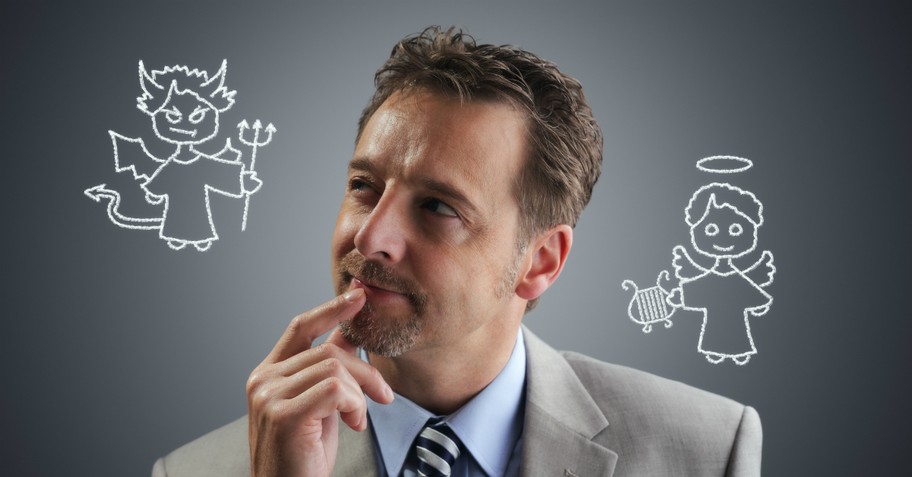5 Things to Know about Healing from Church Abuse

Social media is flooded with hashtags like #ChurchToo, #SBCToo, and #CatholicToo. Newspapers and websites have chronicled horrifying accounts of abuse by pastors, elders, youth ministers, and seminary leaders. But church abuse is so much more than abuse that takes place in a church building. It may be sexual or it may be violent. It may be verbal or psychological. It may be committed by an individual, or perpetuated by a network of abusers, enablers, neglecters, and fools.
But what makes church abuse particularly heinous is that the Holy Word of God is weaponized. The Bride of Christ has been exploited to host evil. Abusers posing as shepherds infiltrate the fold to prey on the lambs, all while claiming to represent Jesus. You’ve heard of wolves in sheep’s clothing. These are wolves in shepherd’s robes. The harm done to victims is multi-faceted; overwhelming the mind, breaking the heart, and suffocating the soul.
There are several layers we need to unpack. There’s the commission of earthly crimes, and the commission of spiritual abominations. There are things you can go to prison for, and things you can go to Hell for. Understanding what’s what, and who is responsible, is key to helping us recover from the greatest betrayal.
Photo Credit: ©GettyImages/Tommaso79

Spiritual Abuse Enables Evil
My main abuser was my father; a well-read theologian and occasional Sunday School teacher. One minute he could be quietly studying the Bible, and the next beating his daughter black and blue. The hands he folded in prayer were the hands he used to push me, shake me, and throw me against walls.
But bruises heal. Tears dry. It’s the hurtful lies and scathing words that stab into your mind like splinters for decades.
“If you don’t forgive me, Jesus won’t forgive you.”
“Honor your father; don’t dishonor him by reporting.”
“If you’re angry or depressed, God won’t hear your prayers.”
I remember being taught that if I was a good little girl, didn’t complain, and didn’t tell anyone, my dad would see Jesus in me. Maybe he’d change and become a good father. Terrible family secrets – porn addictions, violence, sexual abuse, and death threats – were covered up in the name of Christ.
This is spiritual abuse. It is the leveraging of the holy Word of God to enable, excuse, and conceal evil. This is a type of blasphemy. It is a coordinated strategy of bad theology, heresy, and lies, designed to call good evil and evil good, and silence the cries of the oppressed.
But my dad wasn’t my only abuser. Several pastors tried to take advantage of me. One pastor, who also called himself a lawyer, helped cover up my dad’s abuse. He tried to involve me in his Bible study, which turned out to be a polygamous cult. He lied to me about what abuse was, and discouraged me from reporting.
As a child, my parents had friends who (unbeknownst to us) were also abusers. A close friend’s dad went to prison for child abuse. The guy who taught me to play piano for Sunday morning worship, was later convicted of molesting his daughter. My dad was known to be intelligent and educated, but he was also known to be sullen, arrogant, and hostile. Church friends who should have known did nothing. Church friends who should have wondered never asked questions. This is church abuse. So what should we know about how to heal from the damage?
Photo Credit: ©GettyImages

1. You Can Recognize and Overcome the Lens of Abuse
Like all people, survivors of abuse view the world based on our personal experiences. If we have a violent father, it may seem alarming that God calls himself our Father. If we had a cruel pastor, it may be hard to understand why Jesus would call himself a Shepherd. If we had a perverse husband, hearing Jesus referred to as a bridegroom may feel awkward or wrong. If we were betrayed by a youth leader or Sunday School teacher, it seems strange to picture Christ as a Rabbi.
The people of God are supposed to represent God. Their words and actions are supposed to point us to Jesus. When those who should be walking, talking examples of godliness behave in ways more aligned with the devil, it distorts our understanding and emotions regarding Christ and Christianity.
Like a discolored lens, abuse can paint good people, good churches, and even God himself, in shades of pain. So, how do we overcome this? How do we pull off that lens of abuse – that perspective learned from past experiences – and view God in the way he wants us to?
Photo Credit: ©Unsplash/Frank Mckenna

2. Wicked People Don’t Represent God
The first thing to understand is that abusive people do not represent our holy and loving God. An earthly father may be an angry tyrant, yet our Heavenly Father is patient and loving.
A pastor may lead us down the wrong path, yet Jesus remains faithful and true. A husband may berate, degrade, and humiliate us, yet God is the unchangeable embodiment of love. A teacher my teach us lies, yet all God’s words are trustworthy.
You may find it helpful to study and meditate on the fruits of the Spirit; “love, joy, peace, forbearance, kindness, goodness, faithfulness, gentleness and self-control.” (Galatians 5:22-23)
These are the attributes of God. They are also character traits which his Spirit develops within those who truly love him. Compare these attributes with the behavior of an abuser. You will likely find that the abuser is the exact opposite of almost all these things.
Photo Credit: ©GettyImages/Brian A Jackson

3. Abusive Churches Aren’t ‘The Church’
There are toxic, unhealthy, dysfunctional, and abusive churches. However, the True Church, the Bride of Christ, will repent of their sins, turn from their wicked ways, and heal (2 Chronicles 7:14). Where there is no repentance, there is no salvation. Where there is deception and manipulation, there is only enough truth to make the lies sound convincing. Where there is no love, there is no Jesus.
Be wary of churches who bear little to no fruit of the Spirit. As John describes in Revelation 2 and 3, there are loveless churches, there are idolatrous churches, and there are dead churches. Do not let the sins of one congregation, one denomination, or one cult, define the entire Bride of Christ in your mind.
A True Church—the authentic people of God—will be a haven for the broken and oppressed. They will be a family for the widow and the orphan. A True Church does not cover up sin, but calls evil what it is, and defends Christ’s sheep against wolves.
It’s okay to leave an abusive or spiritually-toxic church. Leaving a congregation doesn’t mean you’re leaving Jesus. In fact, if Jesus isn’t in that congregation, leaving it may mean following Jesus. It takes a great deal of wisdom, sacrifice, and prayer, to discern when it’s time to find a new church.
However, when you’re dealing with abuse, or the enablement of it, leaving is often the godly thing to do.
Photo Credit: ©GettyImages/DGLimages

4. You Are Free to Change Up Your Worship Environment
Often, when we leave an abusive church, we’ll feel anxious or even downright paranoid about trying out a new church. Will we jump out of the frying pan into the fire? Will we find that other churches are just as corrupt, and lose hope of fellowship and corporate worship? Will we make ourselves vulnerable to further abuse?
Never trust anyone who tells you not to be cautious. Listen to sermons online. Visit a broad variety of churches, if only to gain perspective. Do your homework and Google the pastors’ names, read their blogs, and listen to their podcasts. Do everything you can to educate yourself before you emotionally invest.
You may find it beneficial to change up your worship environment. If your old abusive church sang stodgy hymns to organ accompaniment, a church band playing sing-able tunes may feel refreshing. If your creepy ex-youth pastor wore skinny jeans and V-necks, a professional pastor in a suit and tie might put you at ease.
Of course, none of these things have theological meaning, but if our mind is interpreting what we’re perceiving through that lens of negative experiences, even subconsciously, it can inject fear, anxiety, and depression into our hearts, inhibiting our ability to worship and fellowship.
So, don’t be afraid to change things up.
Photo Credit: ©GettyImages/Rawpixel

5. Remember that Jesus Suffered Church Abuse, Too
The most important thing you need to know, more than anything else written above, is that Jesus suffered church abuse, too. The Pharisees, Sadducees, and rabbis were the pastors, seminary presidents, and Sunday school teachers of his day.
The Jews who chanted, “Crucify him!” were good and pious temple-goers; the supposed people of God. The disciples who betrayed him, denied him, and fled when things got tough, were his small group, his brothers, his best friends.
The spiritual abuse Jesus endured as he was falsely accused and humiliated would have devastated anyone less than God. In Matthew 4, as Jesus wandered in the wilderness, Satan himself came to deceive, manipulate, mock, and harass him.
And what did Satan do? He quoted the Bible. He twisted the Scriptures. And Jesus called him on this spiritual abuse three times, finally saying, “Away from me, Satan! For it is written: ‘Worship the Lord your God, and serve him only.’”
Why does this matter? Because Jesus Christ can totally relate with what you’ve been through. And you can relate on a personal level with the Lord of all Creation. You are not called to serve abusers. You are not called to submit to evil. You are called to love and honor the ultimate Father, Shepherd, Bridegroom, and Friend. You are called to follow Jesus.
Photo Credit: ©GettyImages/g215
Originally published December 06, 2019.






